Lecturers BioTechno workshop 2008
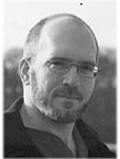
Thomas Cleland received a PhD in neurobiology from the University of California, San Diego in 1997, and held postdoctoral positions at Tufts and Boston Universities and a senior research associate position at Cornell University before being appointed assistant professor of psychology at Cornell in 2007. His research in the olfactory system concerns how complex perceptual phenomena such as constancy, stringency, recognition and generalization arise from cellular and neural circuit properties and how afferent signals are transformed by descending regulation. A particular interest is how the olfactory system solves difficult physical problems such as odor constancy across wide concentration ranges and the computation of similarity in a high-dimensional modality.
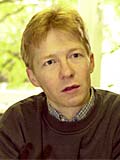
Giovanni Galizia studied Biology and Mathematics at the Freie Universität in Berlin, Germany. He received a PhD in Zoology at the University of California, UK, and held postdoctoral positions at the Max Planck Institut for developmental biology in Tübingen, Germany, and at the Freie Universität Berlin, in the group of Prof. Randolf Menzel. He then led a research group at the Freie Universität Berlin (funded by the VolkswagenStiftung). In 2003-2005 he was Associate Professor of Entomology at the University of California, Riverside, and since 2005 he is Professor for Zoology and Neurobiology at the University of Konstanz, Germany. His research interests cover the neural mechanisms of olfactory coding and processing in insects brains, with special attention to fruit flies and honeybees.
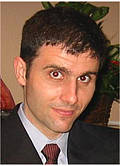
Ricardo Gutierrez-Osuna received a BS degree in Electrical Engineering from the Polytechnic University of Madrid, Spain, in 1992, and MS and PhD degrees in Computer Engineering from North Carolina State University in 1995 and 1998, respectively. From 1998 to 2002 he served on the faculty at Wright State University. He is currently an associate professor of Computer Engineering at Texas A&M University. Dr. Gutierrez-Osuna is a recipient of the National Science Foundation Career Award for his research on machine olfaction with chemical sensors arrays. His research interests include pattern recognition, neuromorphic computation, audio-visual speech processing, and wearable physiological sensing.
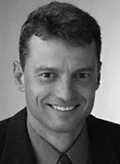
Andreas Hierlemann completed his college education in chemistry at the University of Tübingen (Diploma 1992). He was awarded a PhD degree in Physical Chemistry in 1996, also by the Eberhard-Karls University in Tübingen, Germany. After that, he held postdoc positions at the Texas A & M University, 1997, in College Station, Texas, USA and at the Sandia National Laboratories, 1997-1998, in Albuquerque, New Mexico, USA. In 1999 he joined the physics department of ETH Zurich, where he worked until his appointment to Associate Professor of Microsensorics in June 2004. His research interests include the development of bio-/chemical microsensors and -systems and the interfacing of microtechnology, in particular microelectronics, with living cells such as cardiomyocytes or neurons (see also www.pel.ethz.ch).
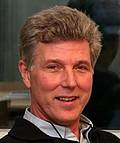
Anders Lansner received his PhD in computer science from the Royal Institute of Technology, Stockholm (KTH), in 1986. He has since held assistant professor and senior lecturer positions in computer science at KTH. In 2000 he was appointed Professor there and since 2002 he is full Professor of computer science. Dr Lansner is head of the Computational Biology and Neurocomputing group and was the first director of the Computational Biology Department at the School of Computer Science and Communication at its establishment in 2006. Dr Lansner’s research activities in the field of computational neuroscience and neuroinformatics concern biophysically detailed as well as connectionist type of computational models applied to the study of the neural mechanisms underlying spinal rhythm generation, cortical associative memory, odour processing, behavior selection, and motor control.
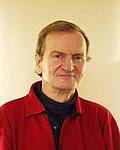
Ingemar Lundström received his PhD in 1970 in solid state electronics from Chalmers University of Technology, Gothenburg, Sweden. Since 1978 he is a professor of applied physics at Linköping University, where he has built up a multidisciplinary research division working at the borders between physics, chemistry and biology including a centre of excellence and a graduate school. He is a member of the Royal Swedish Academies of Sciences and of Engineering Sciences and presently also a member of the Nobel Committee in Physics. His research interests have led to the development of gas sensitive field-effect devices and biospecific interaction analysis based on surface plasmon resonance. He is currently engaged in the computer screen photo-assisted technique and its combination with color indicators e.g. for artificial olfaction.
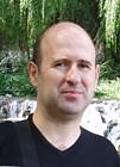
Santiago Marco completed his university degree (Licenciado) in Applied Physics in 1988 and received a PhD in Microsystem Technology from the University of Barcelona in 1993. He held a Human Capital Mobility grant for a postdoctoral position in 1994 at the Department of Electronic Engineering at the University of Rome "Tor Vergata". He is associate Professor (Professor Titular) at the Departament d'Electronica of Universitat de Barcelona since 1995. In 2004 he had a sabbatical leave at EADS-CRC, Munich, working on Ion Mobility Spectrometry. He has recently been appointed leader of the Artificial Olfaction Lab at the Institute of Bioengineering of Catalonia. His research concerns the development of signal/data processing algorithmic solutions for smart chemical sensing based in sensor arrays or microspectrometers integrated typically using Microsystem Technologies (more at http://www.ibecbarcelona.eu and http://isp.el.ub.es).
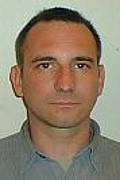
Dominique Martinez received his PhD degree in electrical and electronic engineering from the University Paul Sabatier in Toulouse, France, in 1992. He was a post-doctoral fellow at MIT, Dept. Brain and Cog. Sciences, and Harvard, VLSI group, in Cambridge, MA, USA, in 1992 and 1994, respectively. From 1993 to 1999 he worked at LAAS-CNRS in Toulouse where his research interests were concerned with machine learning. In 2000 he joined LORIA in Nancy and his research interests currently focus on computational neuroscience and olfaction (both biological and artificial).
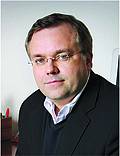
Peter Mombaerts received in 1987 an M.D. degree from the Catholic University in Leuven, Belgium, and in 1992 a Ph.D. in Biology from the Massachusetts Institute of Technology in Cambridge, MA, USA (advisor: Susumu Tonegawa). From 1993-1995, he was a postdoc at Columbia University in New York, NY, USA (advisor: Richard Axel). In 1993, he became assistant professor at The Rockefeller University, New York, NY, USA. He was promoted in 2001 to associate professor and in 2003 to professor. From 1 January 2008, he has taken up a full-time position as director of the new department of molecular neurogenetics at the Max Planck Institute of Biophysics, Frankfurt, Germany.
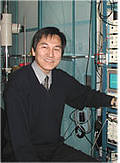
Kensaku Mori: Dept. of Biophysical Engineering, Faculty of Engineering Science, Osaka University, M. of Engineering (1974); Osaka University, Dr. of Engineering, (1978); Dept. of Physiology, School of Medicine, Gunma University; Assistant Professor (1974-1978), Lecturer (1978-1987) Dept. of Physiology and Section of Neuroanatomy, Yale Univ. Sch. of Medicine. USA; Research Associate (1978-1980) Dept. of Neuroscience, Osaka Bioscience Institute; Vice-Head (1987-1995) Lab. for Neuronal Recognition Molecules, Neuronal Function Research Group, Frontier Research Program and Brain Science Institute, RIKEN Group Director and Lab. Head (1995-2000) Dept. of Physiology, Graduate School of Medicine, University of Tokyo; Professor (1999-present); Nakanishi Award for Olfaction (1991), R. H. Wright Award (2001), Tokizane Award (2006), Momofuku Ando Award (2007)
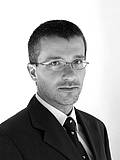
Thomas Nowotny received degrees in theoretical physics from the University of Goettingen (MS, 1998) and Leipzig (PhD, 2001). He the moved into Computational Neuroscience as a Post-Graduate Researcher (2002-2004) and Assistant Research Scientist (2004-2007) at the University of California, San Diego. Since February 2007 he is a RCUK Academic Fellow in the Centre for Computational Neuroscience and Robotics at the University of Sussex. He is a member of the Society for Neuroscience and the German Physical Society. His work in Computational Neuroscience is focused on questions of information processing in olfactory systems, motor pattern generation in small motor systems and hybrid systems technology.

Dr. Tim C. Pearce is Director of the Centre for Bioengineering, University of Leicester, where he currently holds a Senior Lectureship in Bioengineering. He completed his first degree in Electronic Engineering (Honours), awarded by Warwick University and received a PhD. from the same institution in 1997. He has since held the position of Visiting Research Assistant Professor at the Department of Neuroscience, Tufts University Medical School, Boston, USA where he worked on a DARPA supported research programme to translate principles of information processing in the biological olfactory pathway over to practical to instrumentation for chemical sensing. He has published widely in the literature on new approaches and technologies in the context of chemical sensing instrumentation based upon the olfactory (smell), which specifically demonstrates how concepts taken from the biological olfactory system can be applied to achieve practical performance gains. His current research is focused on neuroengineering, which is an emerging field at the intersection of neuroscience and technology, seeking to understand the brain through the development of new technologies.
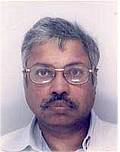
Krishna C. Persaud FRSC, FInstMC, is Professor of Chemoreception in the School of Chemical Engineering and Analytical Science, The University of Manchester, and director of the Olfactory Research Group. Experience and background: Synthesis of heterocyclic materials, Conducting polymer gas sensors, Array-based chemical sensors, Odour sensing, Artificial neural networks, Chemometrics, Physicochemical mechanisms of gas adsorption, Biological aspects of olfaction – sensory physiology, brain function. More than 180 publications in the field.
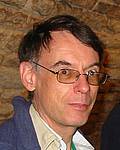
Jean Pierre Rospars received degrees in engineering from Ecole Nationale Supérieur Agronomique, Rennes, France in 1972 and in biophysics from Paris VI University (Pierre and Marie Curie) in 1973. He earned his Ph.D. in neurobiology from Paris XI University (Orsay) in 1985. Since 1974 he has belonged to INRA, the French National Institute for Agricultural Research. Currently he is at the Insect Physiology (PISC) Unit, Versailles, and at the Applied Mathematics and Informatics (MIA) Unit, Jouy-en-Josas. His research interests focus on modelling the structure and function of the olfactory system using morphometric, single neuron and neural network approaches.
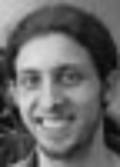
Sergi Bermudez i Badia (1979) is a PostDoc at the laboratory for Synthetic Perceptive, Emotive and Cognitive Systems (SPECS) in the Technology Department of University Pompeu Fabra. He received his Ma. in telecommunications engineering from the Universitat Politecnica de Catalunya (UPC) and his PhD from the Swiss Federal Institute of Technology Zürich (ETHZ). His scientific goal is to investigate the underlying neural mechanisms of biological systems and to exploit them using real world artefacts, ranging from flying robots and industrial robots to interactive spaces. He has pursued research at several institutes in Europe, including the “Laboratoire de Production Microtechnique" at the EPFL (Lausanne), the "Institute of Neuroinformatics" at the ETHZ (Zurich) and currently the "Institute of Audiovisual Studies" at the Universitat Pompeu Fabra (Barcelona).
Profiles of all other lecturers will be added soon
